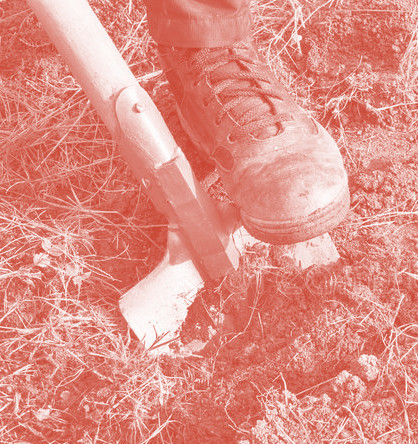Review finds CDP issues
 The Federal Government has released a damning review of its own Aboriginal work-for-the-dole scheme.
The Federal Government has released a damning review of its own Aboriginal work-for-the-dole scheme.
The review found 36 per cent of participants in the Community Development Program (CDP) say their communities are worse off.
The CDP has about 35, 000 participants across Australia – 83 per cent of whom are Indigenous.
It requires participants to engage in up to 25 hours of work a week to receive dole payments.
A survey undertaken as part of the review found 21 per cent felt their community was better off since the CDP was introduced.
However, 36 per cent said the community was worse off and 32 per cent said their community was unchanged.
Aboriginal CDP participants were found to be three times more likely to be penalised for non-attendance, and were penalised more often.
Aboriginal CDP participants went without income for longer periods and gained fewer exemptions on medical grounds “despite a much higher burden of disease in remote Aboriginal and Torres Strait Islander communities”.
The group most likely to be penalised were men under 35 with “poor English-language proficiency, lower education levels”, limited online and phone access to contact Centrelink, and less mobility.
Aboriginal Peak Organisations Northern Territory (APONT) CEO John Patterson said the “CDP experiment should be abandoned and replaced with a positive Aboriginal-led model that ensures a better future for our people”.
“The government’s reforms have taken nearly four years. The discrimination and harm of CDP were apparent years ago and in 2017 we delivered a new model for fair work and strong communities to [Indigenous Affairs] Minister Scullion’s door. But the government refused to listen to us.
“It’s about treating people fairly and compassionately and not taking money away from mums and dads trying their best to make ends meet,” Mr Patterson said.
The report revealed several social problems have increased since the introduction of the CDP, including:
- break-and-enters to steal food, predominantly by children and young people
- domestic and family violence
- financial coercion and family fighting
- mental health problems, feelings of shame, depression, sleep deprivation and hunger
“This research found that for some jobseekers, penalisation has the opposite effect: it demotivates and disempowers them so they may attend but do not engage in the activities or they view CDP as ‘sit down for sit-down money’,” the report said.
There was also no conclusive evidence that the CDP helps participants obtaining a job placement or 13-week outcome.
The number of people finding 26-week placements increased by 1 per cent.
The CDP is also almost twice as expensive as the previous work-for-the-dole scheme.
Minister for Indigenous affairs Nigel Scullion has ignored calls to scrap the scheme, and says instead that it will be expanded.
He has pledged one thousand subsidised jobs for CDP participants from March 2019, with a focus on supporting Indigenous businesses.
“This is because Indigenous organisations are better placed to engage with the community and respond to community priorities,” Scullion said.







 Print
Print